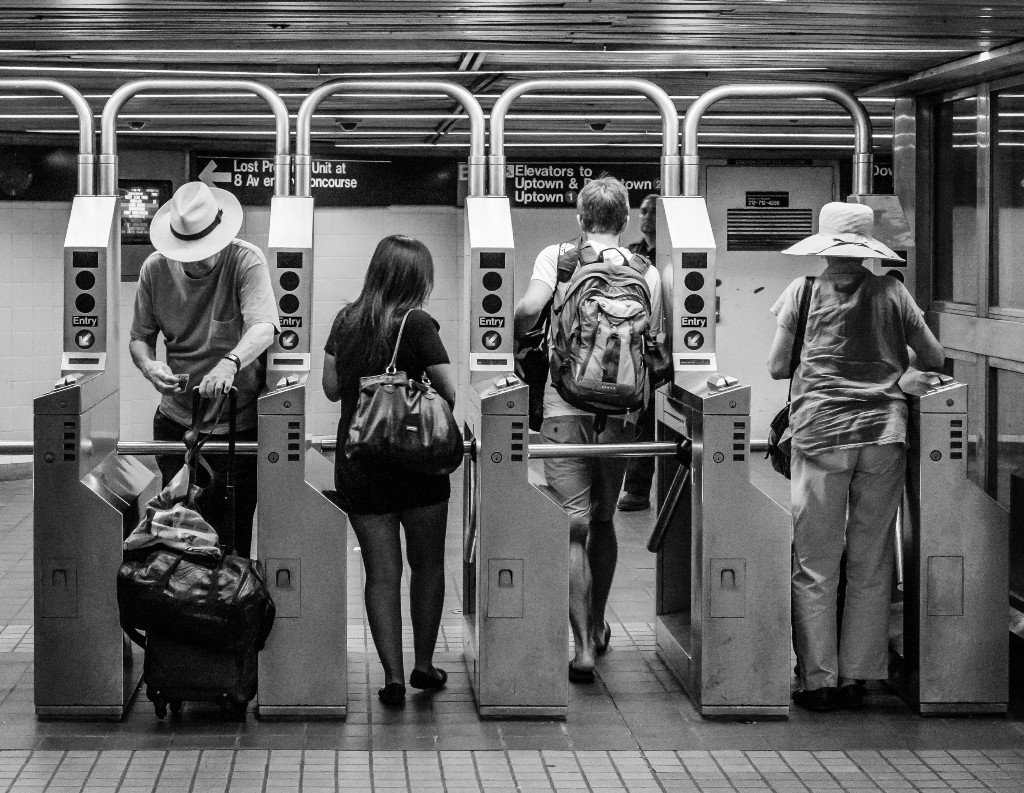West 4th and West 11th Streets, Manhattan

The waitress pointed you out to me over my shoulder. There you were, loitering conspicuous on the corner, outside the very small French restaurant whose inside tables were all empty and whose outside tables were all full. The waitress explained you were here first and I nodded my acceptance of your rightful prior claim to a table.
It’s an awkward thing, to wait on the street, trying not to look wolfish at the plates of the smugly seated. The best thing is to turn your back on them, and stroll around a bit, just to keep the air of nonchalance moving, in much the same way of a dehumidifier. You, sandy-haired, nondescript of jeans and genes both, had posted yourself one side of a lamppost to do this, so I took the other, and we commenced pretending to ignore each other. There we were, like a bad rom-com, each of us waiting for our person. And then I envisioned an even worse rom-com scenario in which we announced to the waitress that we were each other’s party. When our real partners arrived, they’d start a new table of their own. What montages might follow! What airport denouements! What kisses in the pouring rain! This, after all, was the prime neighborhood of normative narrative romance — the chimeric Manhattan of female characters who work entry-level media jobs yet live in prime West Village real estate.
Above the very small French restaurant was the apartment where I’d lived, for free (“house-sat” as the savior friend so generously called it) for one weird sad sick lonely summer. The sad sick loneliness had achieved new depths and dimensions — less bell jar, more polyhedron of thickening plexiglass — each time I ventured from my borrowed apartment into my borrowed neighborhood to try and borrow a life, or some life. Instead, I’d encounter a film crew every time. Or if not a film crew, then tourists taking pictures of the house where Sarah Jessica Parker’s character lived. Or Sarah Jessica Parker herself, walking fast in heels and sunglasses, living doors away from her character’s house. Now, I just felt glad to be old, glad to be waiting for my friend, and glad your friend arrived first so I could watch.
“There you both are!” you burst out, and there was something compensatory about your greeting, as if you’d planned and rehearsed it and now it had come out weird and too loud. It was just one person you greeted, a woman, so I glanced at her belly and yes, she was. “Good to see YOU,” you boomed — and she winced ever so slightly as you mwahed her cheek — “and good to see YOU!” — and now you were crouching down before her belly and spreading your hands at it, blazing your goofy grin, as if ready for the baby to pop open a window through the woman’s stomach and flip you a peace sign, sunglasses on. Your pregnant friend laughed in a strained way, and in glancing around, embarrassed, to see who was witnessing this little spectacle, she caught my eye. I smiled one of those quick smiles that says, Oh I’m not really looking at you and in that slice of a second before she looked away I saw that she was not your wife or girlfriend; she communicated this, as if it were important that I know, important that she disavow you. You didn’t notice because now you were a party of three and your table was ready.
